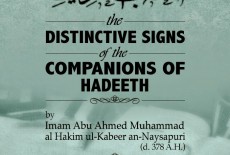A Principle of Fiqh : Specific command is enforced upon the General Command
This is one of the principles of this deen, among the Usool al-Fiqh that a command or instruction that specifies something extra is imposed upon a general command that does not specify that “Extra” bit. Lack of the basic Islamic principles and sciences, causes many western Muslims or Liberal and Ignorant Muslims to directly utter blasphemous words in order to paint a nice picture in front of the western sources or they eventually use the wrong ways to explain the right things. Awareness of such principles help avoid both
1) humiliation in the after life in front of Allah for speaking, passing a comment and judging without knowledge
2) helps answer about Islam in an appropriate manner
In the following examples, i will first quote that passage which reflects a general command, statement, instruction, etc and then follow it with a Specific command, statement, instruction etc. that adds an exemption or adds an exclusion to the above general command.
Example 1
General: Prophet (peace and blessings of Allaah be upon him) said: “The earth has been made a place of prayer and a means of purification for me, so wherever a man is when the time for prayer comes, let him pray.”
[Ref: Narrated by al-Bukhaari, al-Tayammum, 323, Fiq us Sunnah Vol 2. page 67)
Specific : Prophet (peace and blessings of Allaah be upon him) said: “All the earth is a mosque except for graveyards and bathrooms.”
[Ref: Narrated by al-Tirmidhi, al-Salaah, 291; classed as saheeh by al-Albaani in Saheeh Sunan al-Tirmidhi, 262, Also reported by Ahmad, Ibn Majah, Abu dawood]
- Hadith # 1 shows that rasool (s.a.w) generalized the entire earth area as a carpet to pray on, however in Hadith # 2 we learn that rasool (s.a.w) excluded certain area from the total earth space , i.e. he gave a specific ruling that entire earth can be prayed on except graveyards and bathrooms. this specific (khaas) command of rasool (s.a.w) overtakes the general (‘aam) command of hadith # 1 and after knowing hadeeth # 2 no sane person would insists on praying in bathrooms or graveyards just because he has read hadith # 1
Example 2
General command : Allah says interp. ” Then Kill the polytheist wherever you find them (during a battle) ” [Qur`an Tawbah verse 5]
Specific command : ” Do not kill a (polytheist) child ” [Ref: Saheeh Muslim 1731]
Thus, this general command has certain exemptions and one such exemption is a child as proven from another source. So the specific is imposed over the general.
See this for more detail on the subject of killing Non Combatants in battle : http://the-finalrevelation.blogspot.ae/2014/08/intentional-killing-of-non-combatants.html
Example 3
General Command : Allah says ” Forbidden upon you are the dead meat ” [Qur`an Al-Maidah 3]
Specific command : The prophet sallalahu `alayhi wa sallam permitted the dead animals of the sea [Ref: Muwatta Imam Malik via Ibn al-Qasim , Sanad Saheeh]
Example 4
General command : Man and woman both are obliged to pray 5 times a day
Specific : Women in Menses are exempted from prayer and do not have to make it up later either
Example 5
Men are forbidden from wearing Silk [Ref: Saheeh Bukhaari, 5499]
However those men who suffer from certain rashes or diseases may wear silk as the prophet permitted this in these situations temporarily for Az-Zubayr and `Abdur rahman [Ref: Saheeh Bukhaari 5501]
Example 6
The Brothers of Yusuf `alayhis salaam prostrated to him out of reverence (as was the custom then and not out of lordship) [Qur`an Surah Yusuf Verse 100]
This general verse would show as if it were permissible for anyone to prostrate to anyone out of reverence, but this general verse was imposed upon by the specific saheeh khabar wahid hadeeth of the Messenger of Allah sallalahu `alayhi wa sallam who said:
If i were to permit (or if it was permissible for) anyone to prostrate to other than Allah, then i would have commanded the wives to prostrate to their husbands
[Ref: Sunan Ibn Maajah 1853; and elsewhere; Hasan]
Example 7
Allah says “And lawful to you are [all other women to marry] beyond these” [Qur`an 4:24]
From this it is deduced that Muslim women to marry are permissible. However, even within those permissible list the prophet sallalahu `alayhi wa sallam made an exception to this general Qur`anic verse .
Al-Bukhaari (5109) and Muslim (1408) narrated from Abu Hurayrah (may Allah be pleased with him) that the Messenger of Allah (blessings and peace of Allah be upon him) said:
“One should not be married to a woman and her paternal aunt, or a woman and her maternal aunt, at the same time.”
So even though it is permissible to marry upto 4 women , yet certain combinations are forbidden
Example 8
Allah says “Allah instructs you concerning your children: for the male, what is equal to the share of two females. ” [Qur`an 4:11]
This verse in it’s generality shows that it seems as if it is permissible for a Kafir son to inherit from his Muslim Father, however the hadeeth :
” A kaafir cannot inherit a Muslim” or “A muslim cannot have a kafir inheritor” [Ref: Saheeh Bukhaari]
Example 9
Allah says “Say, Who has forbidden the adornment of Allah which He has produced for His servants and the good [lawful] things of provision?” [Qur`an 7:32]
This verse seems as if it also permits silk dresses for men, however the following hadeeth exempts the adornment of silk from men
Men are forbidden from wearing Silk [Ref: Saheeh Bukhaari, 5499]
Example 10
And that there is not for man except that [good] for which he strives [Qur`an 53:39]
This verse shows as if a man achieves the good result of only what he himself has earned, however the hadeeth permitting son and daughter to perform Umrah for their dead parents adds an exception to this general verse [Ref: Saheeh Bukhaari 1852]
Example 11
Allah instructs you concerning your children: for the male, what is equal to the share of two females. [Qur`an 4:10 ]
Sulayman inherited Dawood [Qur`an Naml, 16]
These general verses show as if the prophets and Messengers can be inherited however the hadeeth stating the following adds an exception to the generality of this verse
“We do not have inheritors, whatever we leave is charity” [Ref: Saheeh Bukhaari]
The understanding of the Salafus Saliheen
1) Ibn Hajar rahimahullah said under a hadeeth
” Verily khaas (specific) is a judge (in ruling and application) over an `Aam (general hadeeth) “
[Ref: Fath ul-Bari 1/89; H: 32]
2) Shaykh al-Islam ibn Taymiyyah rahimahullah said :
” and the specific evidence is imposed over the general evidence”
[Ref: Majmoo` al-Fataawa ]
3) Shaykh Abu Hayyan Muhammad ibn Yusuf al-Andalusi (D. 745 A.H) [1] said
And there is no doubt that the specific (daleel) is preferred to the general (daleel)
[Ref: Tafseer al-Bahr al-Muheet Volume 3/ Page 168, under Surah an-Nisa 10 – This example was quoted as a proof by one of the Imams of Ahl al-hadeeth of our era – Hafidh Zubayr `Ali Zaee rahimahullah ]
[1] He was an Imaam of his time, a follower of the `Ashari school and was Zahiri in his fiqhi inclinations. However when he came to Misr, he studied the shaf`i madhab but in matters of dispute gave preference to the view of Ibn Hazam rahimahullah. He also summarized the work of Ibn Hazm entitled al-Anwar al-Ajla fi Ikhtisar al-Muhalla, as
he mentioned it in his book al-Bahr al-Muhit. He was given many titles such as Muffasir, al-Athari, an-Nahwi, and so on. However when he came to Egypt he saw people indulged in Kalaam which he hated and one who researches his bio will learn that he remarked upon seeing this state in Egypt ” Even we the andalusians hate Kalaam!!”
4) Imam fakhrud Din ar-Razi al-`Ashari (rahimahullah) said :
And there is no doubt that the specific is imposed upon the general injuctions
[Ref: Tafseer ar-Razi 5/50 ,Surah al-Baqarah 178]
5) Imam Abu Shammah (one of the teachers of Imam Nawawi) rahimahullah said :
thus the specific is imposed over the general
[Ref: al-Ba`ath `Ala Inkaaril Bid`ah 1/65; Maktabah Shamila]
6) Imam ash-Shawkani al-Yemeni rahimahullah said :
The specific is taken over the general evidence
[Ref: Nayl al-Awtaar 1/485]
7) Ibn Wazeer al-Yamani (840 A.H) in Aythar al-Haq `Alal-Khalq page 411; Nawab Siddique Khan in Rawdatun Nadhr, Ibn `Abideen ash-Shaami also narrated the aqwaal of `Ulema affirming these views
8) Imam Abu Haneefah giving a specific hadeeth precedence over a general hadeeth
It is Narrated by Imam Abu `Awwana Wazah (D. 175 A.H) rahimahullah that he was in the company of (Imam) Abu Haneefa, A letter came from a man To him (Abu Haneefa ) in which there were some Questions (regarding when the hands of thief should be cut off)
Abu Haneefa rahimahullah said Write ” cut off, Cut off (the hand) “. Untilt he questioner asked ” What about a thief who stole dates and some fruits from a garden?” To which He(Abu haneefa) said: ” Write Cut off (the Hands)” . I (Abu Awanah) Said wait, Do not write this for this is a mistake of a scholar. Abu haneefah asked me ” What is the issue” ? I replied : ” The Prophet Peace be upon him said: لا قطع في ثمر ولا كثر Hands should not be Cut in the Theft of a Fruit… He (Abu Haneefa) said:
Erase my previous fatwa and write that the Hand Should not be cut off (in this case).
[Ref: Kitaab as-sunnah by `Abdullah ibn Ahmad ibn Hanbal 1/221 H :380 Sanad Saheeh]
9) Imam Ibn Hajr said :
And the majority of the `Ulema follow the Madhab (opinion) that the general verses of the Qur`an can also be restricted/specified on the basis of a khabr-waahid hadeeth
[Ref: Fath ul-Baari 9/ 162; H: 5108]








